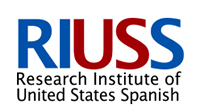EDITOR’S NOTE
For decades, the founders of the Research Institute of United States Spanish have concerned themselves, in their different disciplines, with the challenges posed by communicating in Spanish in the largest bilingual society where English and Spanish coexist. Among and embedded within the many stakeholders that communicate in Spanish in the U.S. are translators of all sorts, from credentialed professionals through bilingual employees who may be heritage speakers without any knowledge of grammar. However, communication based on unchecked assumptions may or may not reach all its intended readers, and this is the major challenge that RIUSS is committed to help overcome.
From the very beginning, we all knew that this would be an interdisciplinary task. This first issue of RIUSS Journal addresses some of the areas of interest that need to be researched and pursued:
- an overview of a new pan-Hispanic undertaking around public policies of lenguaje claro, the equivalent of U.S. plain language
- considerations on the U.S. Spanish norm, its challenges and realities
- an analysis of the implications of translating for the United States
- aspects of the experience of being bilingual
- an interview with the director of a nationwide initiative that for several years has been carried out in healthcare settings
We invite language and communication professionals at large to share their concerns and approaches in areas of research that have not received a great deal of scholarly study. We are interested both in theoretical and empirically-based studies and discussions, translation studies, linguistic analysis and the impact of new big data analysis technologies. Our preliminary work around projects focused on achieving US-based lenguaje claro/plain language is already starting a new era of research that may lead to establishing a better understanding of the use of Spanish in the United States.
